Scaling for Success: Dos and Don'ts
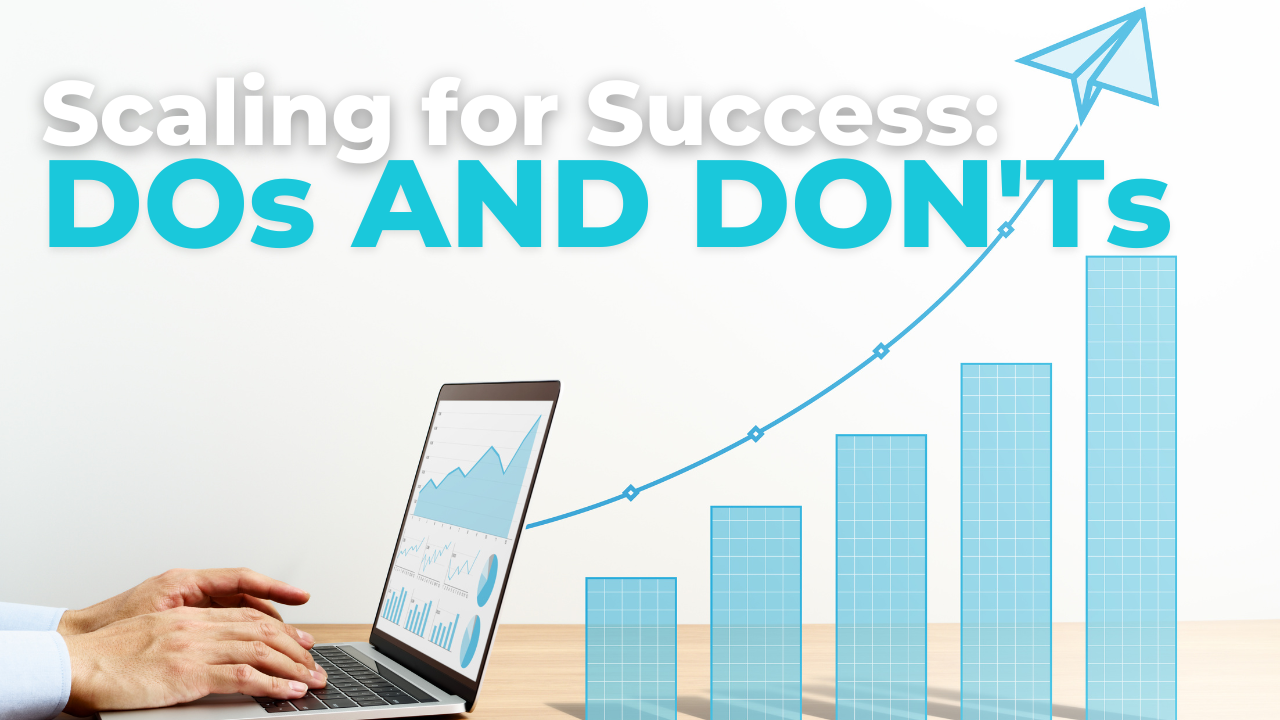
As a business owner, the decision to scale can be both exciting and nerve-wracking. To help you navigate this pivotal phase confidently, we've compiled a list of dos and don'ts.
The Dos of Scaling:
-
Develop a Clear Strategy: This is not the time to take a page from the "Not all who wander are lost" Tolkien crew. If you leave this part to chance...you WILL be lost. Craft a well-defined scaling strategy that aligns with your long-term goals. Outline your target market, expansion plans, operational changes, and resource requirements. A roadmap ensures you stay on track and make informed decisions throughout the scaling process.
-
Invest in Infrastructure: You can't put lipstick on a pig and think it will stop smelling like shit. Build a solid foundation to support growth by investing in technology, processes, and systems. Scalable infrastructure allows your business to handle increased demand without compromising efficiency or customer satisfaction.
-
Cultivate a High-Perf...
The Art of Delegation
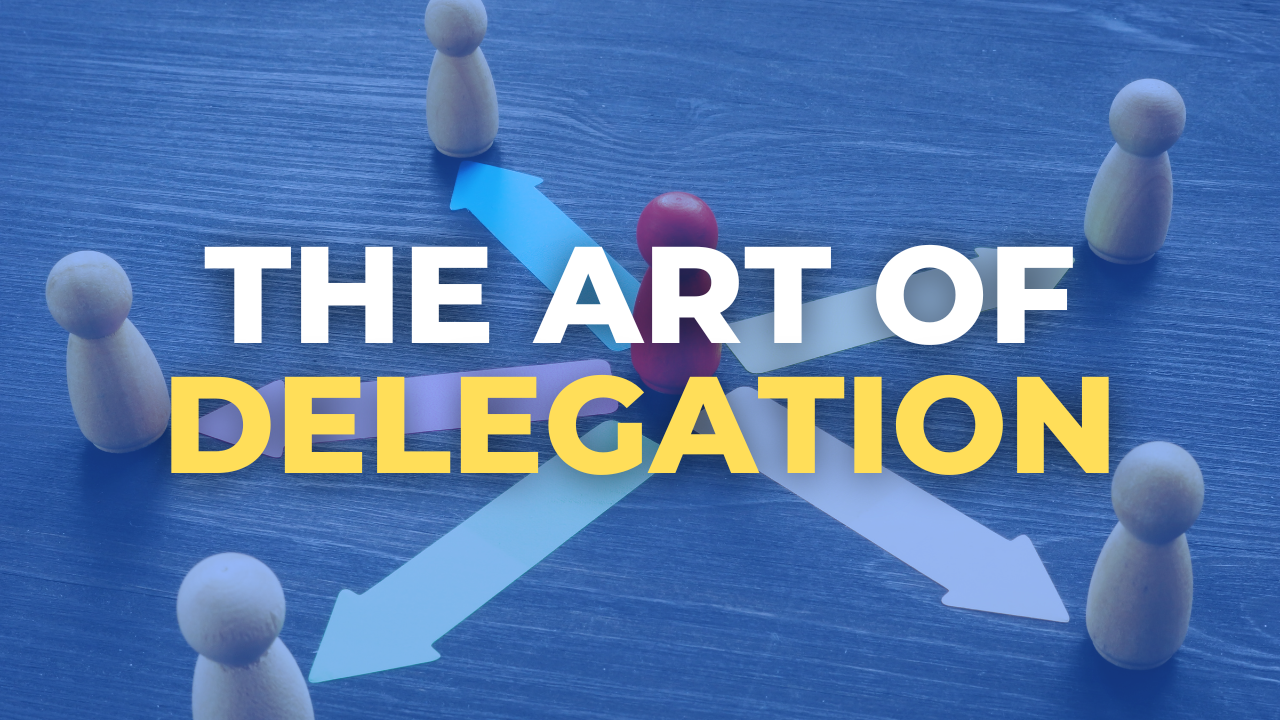
In the bustling world of entrepreneurship, it's easy to fall into the trap of doing everything yourself. As a business owner, you may be stretched thin from wearing multiple hats, juggling tasks, and having a never-ending to-do list. However, delegation is a powerful tool that can help you reclaim your time and sanity. By entrusting tasks to others, you can focus on your strengths and enhance your business skills.
But sometimes that’s easier said than done.
Picture this: you're the proud owner of a small business, and you've poured your heart and soul into it. You've painstakingly built your empire, from late-night brainstorming sessions to caffeinated power hours. But the thought of delegating gives you an uncomfortable tingle down your spine, doesn't it? You're not alone. There are three primary reasons many business owners struggle with delegation.
1. "Nobody does it like I do"
The classic perfectionist's dilemma. You've meticulously crafted your business with your unique...
The Good, the Bad, and the Artificial: Exploring the Pros and Cons of AI

We’re not sure if you’ve heard about it or not, but there’s this little thing called Artificial Intelligence (AI for short) that’s been causing quite a stir in recent months. Granted, it’s been around for a while now (we’re talking as far back as the 60s), but due to its rapidly evolving nature, it’s now on the lips - and minds - of nearly everyone. From large corporations racing to stay in the lead of new developments to high school kids trying to pass off ChatGPT-generated term papers, a lot of people are keen to jump on the AI bandwagon.
On the flip side, there are a lot of people interested in jumping OFF the AI bandwagon or, at the very least, tapping the breaks. Leaders like Elon Musk, Steve Wozniak, and “The Godfather of AI” Geoffrey Hinton have all spoken out and urged prudence; artificial intelligence HAS evolved rapidly, and they argue we may not yet know what the long-term effects (both positive and negative) might be.
Despite this, the technology shows no signs of ...
When (and Why) to Separate from an Employee
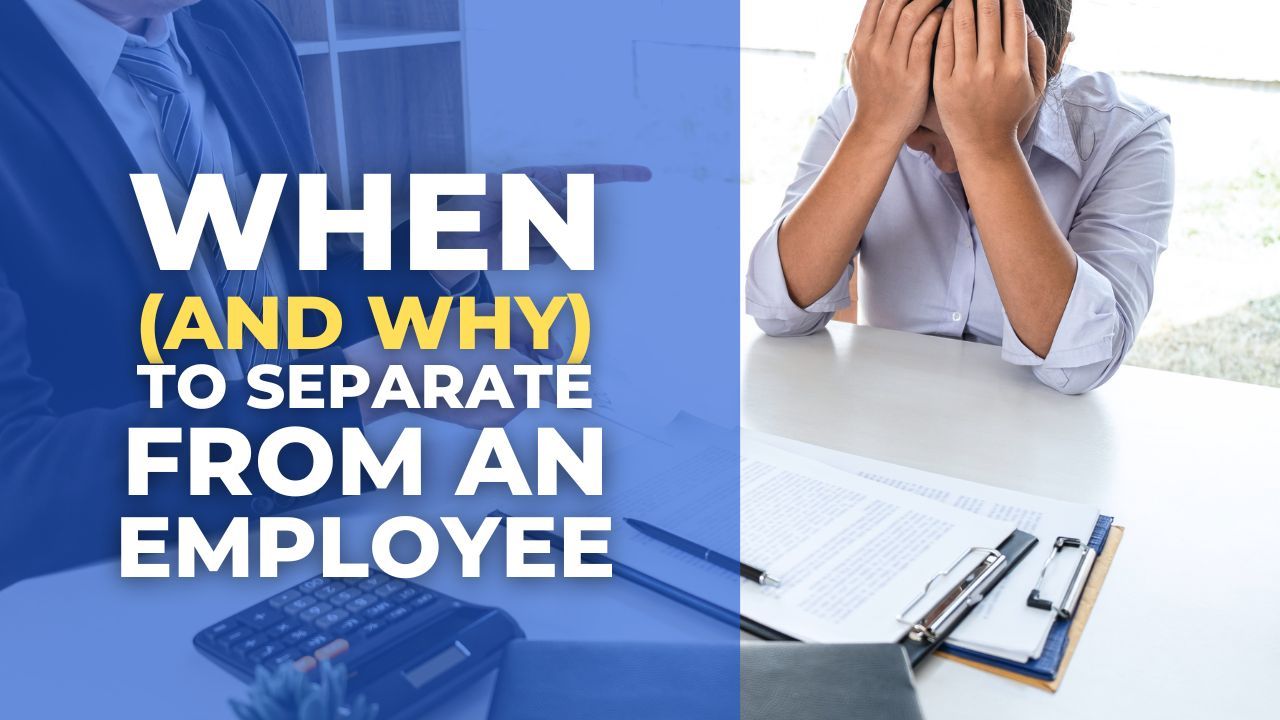
Employee separation is probably one of the least fun tasks a business owner must do. It can be stressful, awkward, and downright unpleasant…especially if you've built any sort of relationship with them along the way. But this isn't a fraternity or a charity; this is business. And if you've got someone on the team not pulling their weight, there's no need to let him or her drag you and the rest of the group down.
First things first, let's talk about how to mitigate the risk of hiring a dud employee in the first place. (An ounce of prevention and all that, you know?)
- Be clear about your expectations: Before you even start the hiring process, make sure you're clear about what you're looking for in an employee. What skills do they need? What experience? What kind of attitude and work ethic are you looking for? Being clear about your expectations can help you identify candidates who are a good fit for your business.
- Use behavioral interviewing techniques: When interviewing candidat...
7 Ways to Personalize Customer Service for Your Small Business
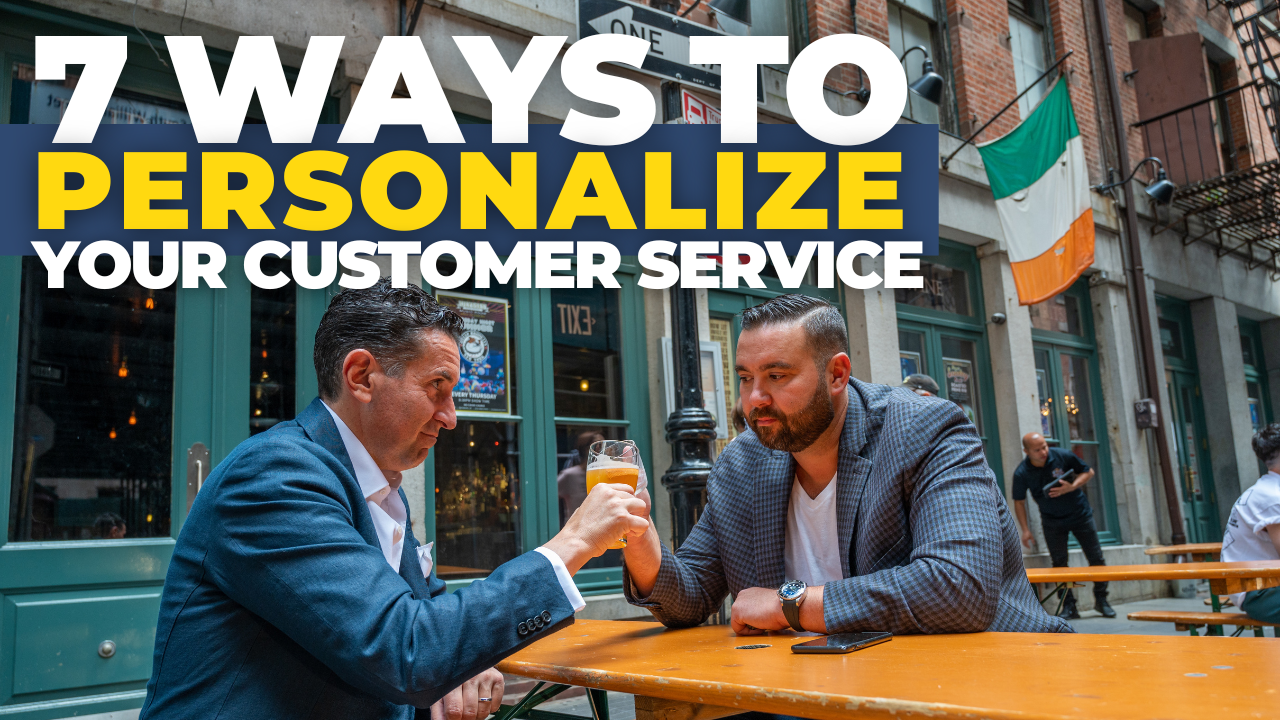
Customer service can be kind of like a first date; screw it up badly enough, and you probably won’t get a second one. Not only that but in today’s world of Yelp reviews and (ugh) viral TikToks, if you piss off the wrong person, that one “date” can have some serious long-term repercussions. Excellent customer service is expected, and if you fall short, you (and the rest of the internet) are going to hear about it.
Now, we aren’t suggesting you need to bend to the whims and fancies of the entitled, perpetually unhappy, or fame-seeking nuisances who will always find something to bitch about. Nor are we saying you should approach customer service from a place of fear. Remember, your customers are your business's greatest asset; building and maintaining relationships should be a priority because you want to meet their needs, not because you’re afraid they’ll leave a nasty online review.
If you’re looking for ways to up your customer service game, consider personalizing it. Research...
Five Money Mistakes to Avoid

Freelancing. Contract work. Solopreneurship. Whatever you call it, it’s on the rise. The old American dream is dead, and more and more people are turning to alternative solutions for economic stability. In fact, it’s estimated that nearly 45% of the population has some sort of side hustle…and that number is expected to grow.
As perpetual champions for the small biz owner, we love these numbers. We think everyone should - and can - own some type of business. (We wrote a book about it, that’s how much we believe it.) From part-time side hustles to passive income streams, the possibilities are endless.
But with those possibilities come problems, and if you don’t treat your business for what it is…a business…those problems are really going to put a cramp in your journey to financial independence, particularly when it comes to finances.
With that in mind, here are five common problems entrepreneurs, solopreneurs, contractors, freelancers, side-hustlers, and new business owners ...
The Power of Strategy for Small Business Owners

As a small business owner, you're constantly juggling multiple tasks and wearing multiple hats to keep your business running smoothly. With limited resources and time, it's easy to get caught up in the day-to-day operations and neglect the bigger picture. However, taking the time to strategize and plan for the future is crucial for success.
Explore these five examples of how strategic planning can help our business.
It helps you clarify where you want to go:
Imagine taking a trip without a map, GPS, or destination. You’d probably end up wandering aimlessly and wasting time and resources. The same applies to your business. Without a clear strategy, you may make hasty decisions or get lost in the ever-changing market dynamics. Strategic planning helps you set clear goals, define your mission and vision, and identify the steps to get where you want to go.
It can help you maximize resources:
Small businesses often operate with limited resources, including time, money, and man...
Beyond the Obvious: Unexpected Liabilities Every Small Business Owner Should Know
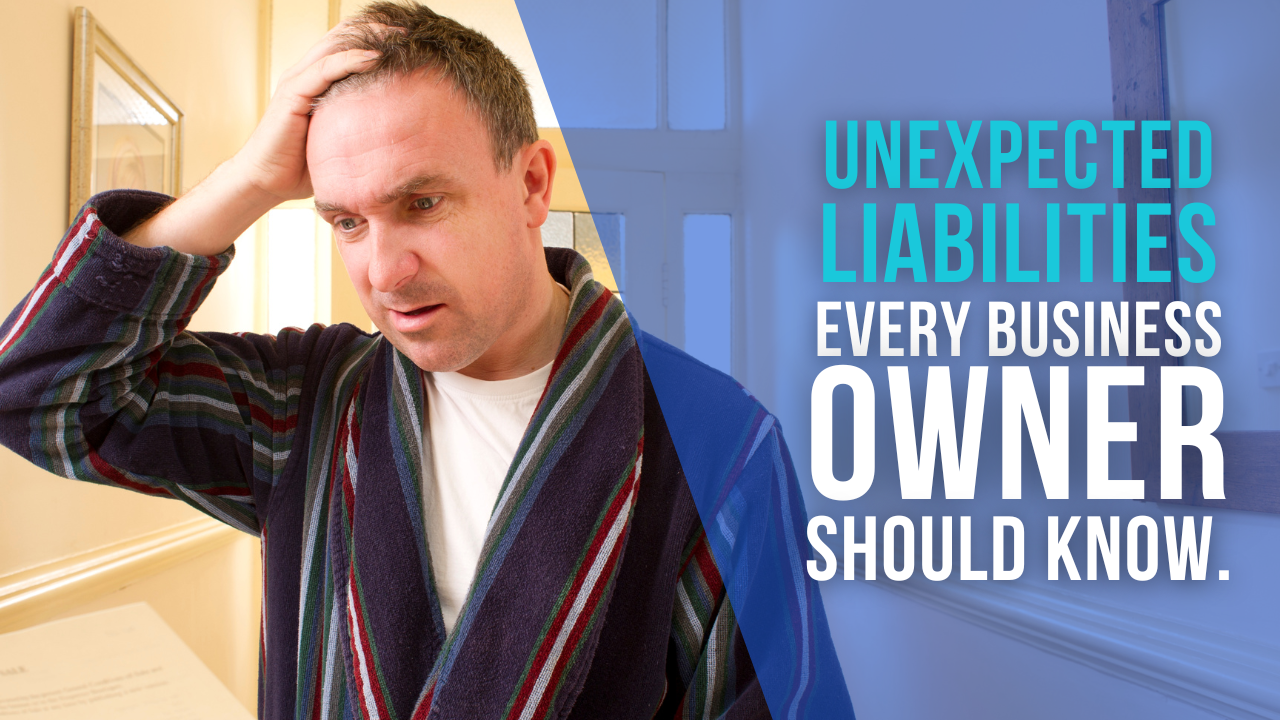
As a small business owner, you're (hopefully) well aware of the typical liabilities that come with the territory (rent, employee salaries, taxes, and so on). However, a few lesser-known liabilities can catch you off guard if you're unprepared - potentially leading to financial loss or legal disputes. Check out these six lesser-known liabilities you should be aware of to ensure your business remains protected.
Cybersecurity Breaches: In today's digital world, cybersecurity breaches are becoming as common as - well, the common cold - and small businesses are not immune to them. Cyber attacks, such as ransomware, data breaches, or phishing attacks, can mean significant financial losses, damage to your reputation, and legal liabilities. Unfortunately, small businesses are often targeted because they are less likely to have robust cybersecurity measures in place. As a business owner, it's crucial to invest in cybersecurity measures such as firewalls, antivirus software, regular data back...
Good Communication is Good for Business!

There's a laundry list of attributes that sets successful business leaders and entrepreneurs apart from the rest. A strong work ethic. Visionary thinking. Unafraid to take risks. Resiliency. And let's be honest, a little bit of swagger or a dash of charisma never hurts, either.
But one of the most often overlooked - yet highly essential - characteristics is their ability to communicate timely and effectively. On episode 73 of The Liquid Lunch Project podcast, our guest, Brenden from Master Talk, pointed out that we often set goals for things like revenue, attracting more customers, or expanding operations, but very rarely do we pay attention to our ability (or lack thereof) to communicate. We treat it like a chore rather than a skill that needs to be practiced. But as your business scales, your communication skills must grow with it.
It's also important to keep in mind that good habits start at the top. Being routinely late for meetings, overlooking important messages, or fail...
Should You Name Your Business After Yourself?
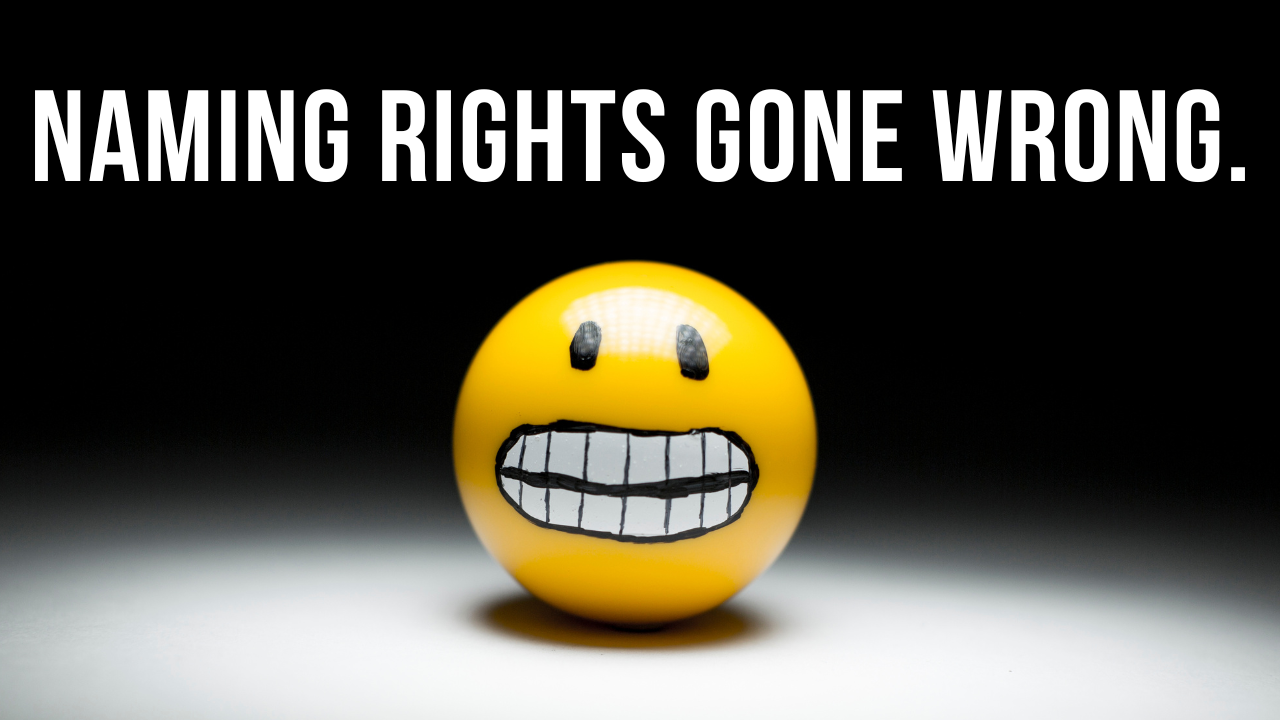
What’s in a name? According to Willy Shakespeare, not a whole lot. But since we aren’t in the habit of taking business advice from Bards of yore, we feel pretty confident in expressing our profound disagreement with his sentiments - especially when it comes to selecting a name for your business.
For many people, the go-to move is to name their baby biz after themselves: Joe’s Plumbing. Trevor’s Gym. Cindy’s Dance Studio. They’re not particularly creative, but they get the job done. And who doesn’t want their name to be synonymous with success, right? However, as much as you might want to see your name in shining lights, putting your name on your business could cause problems down the road.
Before you slap your name on the front door, here are five things to consider before naming a business after yourself.
- Limited scalability: If you name your business after yourself, expanding beyond your personal brand can be difficult. This might work well for small, boutique-style bus...



